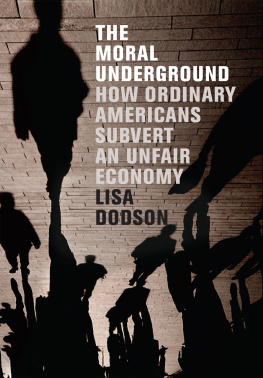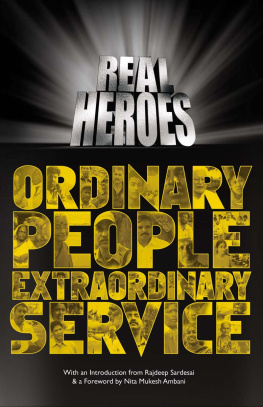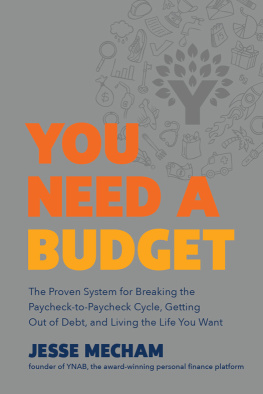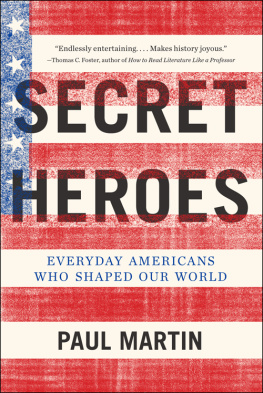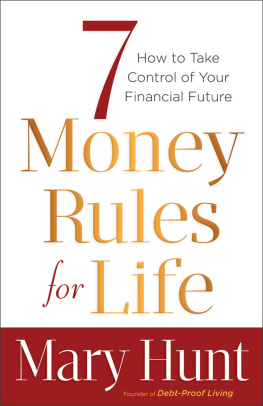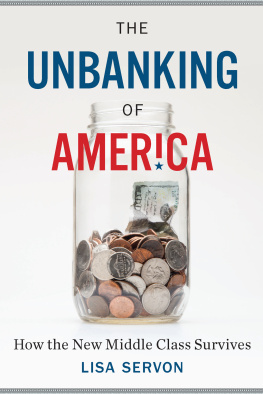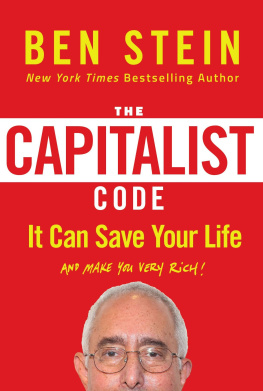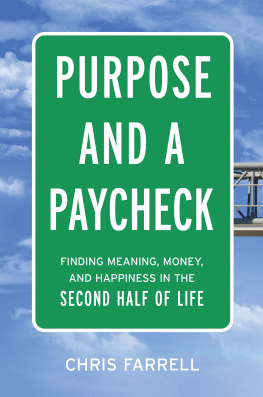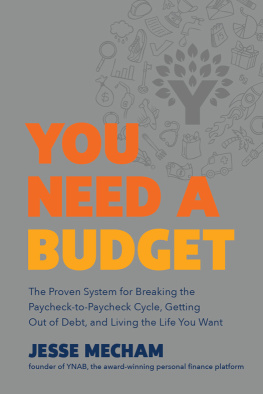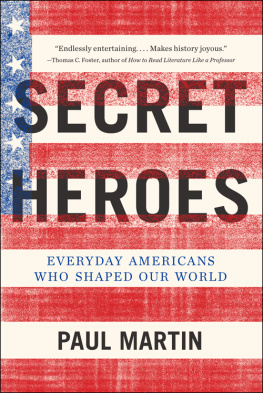
Also by Lisa Dodson
Dont Call Us Out of Name:
The Untold Lives of Women and Girls in Poor America
THE MORAL UNDERGROUND
How Ordinary Americans
Subvert an Unfair Economy
LISA DODSON
2009 by Lisa Dodson
All rights reserved.
No part of this book may be reproduced, in any form,
without written permission from the publisher.
Requests for permission to reproduce selections from this book should be mailed to:
Permissions Department, The New Press, 38 Greene Street, New York, NY 10013.
Published in the United States by The New Press, New York, 2009
Distributed by Perseus Distribution
LIBRARY OF CONGRESS CATALOGING-IN-PUBLICATION DATA
Dodson, Lisa.
The moral underground: how ordinary Americans subvert an unfair economy /
Lisa Dodson.
p. cm.
Includes bibliographical references.
ISBN 978-1-59558-472-4 (hc. : alk. paper)
1. Income United States. 2. Income distribution United States.
3. Family Economic aspects United States. 4. Parenting
Social aspects United States. I. Title.
HC110.I5D63 2010
339.20973dc22 2009022520
The New Press was established in 1990 as a not-for-profit alternative to the large,
commercial publishing houses currently dominating the book publishing industry.
The New Press operates in the public interest rather than for private gain, and is
committed to publishing, in innovative ways, works of educational, cultural, and
community value that are often deemed insufficiently profitable.
www.thenewpress.com
Composition by dix!
This book was set in Fournier MT
PREFACE
When I started this research eight years ago there wasnt much interest in ordinary peoples views on the unfairness of the economy. Wealth was booming according to conventional measures of corporate gain with opening global markets and consumer spending. The only threat to the countrys well-being, we were told, was imminent terrorist attacks. Of course there were a few stalwarts who challenged the direction of the economy and pointed to deepening wealth disparity. But a critique from belowwhere people actually live the effects of unregulated inequalitywas absent.
Life in America has certainly changed since this research began. The winner-gets-all economy has been unraveling, shaking up businesses, public institutions, cities and towns, and the majority of families. Some political analysts viewed the last presidential election as a turning point for the nation. So alongside financial instability there has also been a sense of change, a new-day feeling that people may start to matter, not just banks and corporations.
Yet the research in this book found a quiet resistance to the unfair economy that had been there all the while. Out of sight of the media and political limelight, I listened to ordinary people talk about loathing economic abuses that they witnessed every day. And in their tales of contemporary injustice, I heard old American themes of civil disobedience, loyal resistance, and acts of solidarity that have drawn ordinary people together forever. We are told Americans are passive in the face of economic brutality and will blame each other rather than turn around and point to those who make the rules and hold wealth and power. But I have learned otherwise. And though I found no common movement or broad campaign, I learned of hundreds of small acts that tell a larger tale of Americans who reject an economy that destroys its people.
Back in 2001 I set out to explore what its like for families to live on low wages. I also wanted to hear what its like to pay them and what its like to employ, teach, counsel, heal, or in any way get to know families that dont earn enough to get by. Over the years that followed, several hundred peoplemiddle-income and working poortaught me a lot about America. But above all they reminded me that the people are the root of any real change. No president or house of lawmakers can truly transform this society without the people at the center holding a vital stake and having a strong voice. And in the quiet corners of the country, a lot of these people have long been talking about society gone wrong. Over the years I heard constant talk about hard work, common cares, and fairness as the stuff that holds us together. People also talked about political and corporate leaders who routinely betray all this for personal gain. Today, we hear news of how the people at the top piled wealth on the rich and ignored damage to the rest. But everywhere in America versions of this story were being told and retold for years.
Most people said that fairness is at the heart of a decent society and that deepening inequality undermines everything that really matters. And some went further. They said that when fairness is betrayed, when ordinary people just dont matter to those who get to make the rules, it may be time to break them. It may be time to come up with some new rules that are based on the public good. Thats what this book is about.
ACKNOWLEDGMENTS
I am deeply grateful to the many people who participated in or supported various stages of this research. Foremost, I thank the hundreds of individuals who spent long hours speaking to me about their lives and their perspectives on economic justice, as well as those who spent time interpreting the data with me. I thank many others who worked with me in various ways over the years, seeking funding for the research, coordinating and/or conducting fieldwork, and analyzing the data. They include, alphabetically: Chiwen Bao, Christine Bishop, Amanda Bohlig, Ellen Bravo, Francoise Carre, Janice Dabney, Almas Dossa, Jody Hoffer Gittell, Walter Leutz, Tiffany Manuel, Davida McDonald, Linda Meric, Anna White Nockleby, Susan Pfeffle, Liliana Silva, Dana Beth Weinberg, and Rebekah Zincavage.
I also sincerely thank those of you who did not want your names included in print yet who helped me get connected to people working in schools, businesses, job training programs, health centers, hospitals, and other locations that were essential both for the fieldwork and interpretive focus groups. I thank the cities of Boston and Cambridge for early support of pilot studies that led me on to pursue this research.
I am deeply grateful for the support of Helen Neuborne of the Ford Foundation, as well as Michael Laracy at the Annie E. Casey Foundation. I thank Debra Lipson at the Robert Wood Johnson Foundation, Mary Jane Koren at the Commonwealth Fund, and Debby King, executive director, Training and Employee Funds, 1199SEIU United Healthcare Workers East. It is rare to get support for research that goes beyond gathering statistics and correlating phenomena and allows for the time it takes to learn from daily lives and quiet insights of regular people.
My editor, Diane Wachtell at The New Press, offered constant support for this project. She provided me with thoughtful editorial comments, made wonderful suggestions that strengthened the book, and, most important, believed in the work immediately and throughout its development.
I cannot say how grateful I am for countless hours of devoted help from my partner, John Fontana. I would not have completed this eight-year climb without him, constant compaero , tough critic, and incredibly patient reader. I am also very thankful to Deborah Stone for numerous reads of the manuscript, many conversations about moral resistance, and such attuned editorial comments. I thank Mona Harrington for a decade of talk about carework and equality in a deeply stratified society. And I deeply value my ongoing collaboration with Wendy Luttrell, as we explore how mothers and children lift and climb together. As always, I cherish the interpretive insights of Lucie White, who is never afraid to go underground.
Next page
